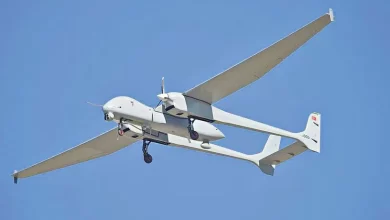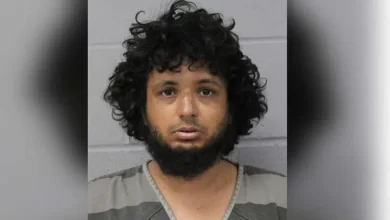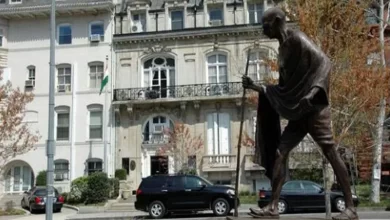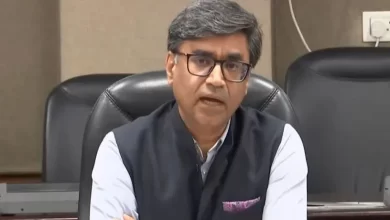Sudan rival forces battle in capital as UN sees little prospect for mediation now

Sudan’s battling factions both claimed to have made gains on Monday as continued violence cut power and water in the capital, and the U.N. envoy to Sudan said the two sides showed no signs of being willing to negotiate.
The rupture between the army and the paramilitary Rapid Support Forces (RSF) has killed at least 185 people and injured more than 1,800, said U.N. envoy Volker Perthes amid airstrikes and fighting in Khartoum and strife across Sudan. Their deadly power struggle has derailed a shift to civilian rule and raised fears of a wider conflict.
Smoke hung over the capital, and residents reported a clamour of airstrikes, artillery fire and shooting that shut hospitals in a city unused to violence.
“The two sides who are fighting are not giving the impression that they want mediation for a peace between them right away,” Perthes told reporters by videolink from Khartoum.
He said the sides had agreed a three-hour humanitarian truce. But for a second consecutive day fighting continued despite the promises of calm, according to Al Jazeera and Al Arabiya TV reporters broadcasting from Khartoum.
The fighting in Khartoum and its adjoining sister cities of Omdurman and Bahri since Saturday is the worst in decades and risks tearing Sudan between two military factions that had shared power during a rocky political transition.
Army chief General Abdel Fattah al-Burhan heads a ruling council installed after a 2021 coup and the 2019 ousting of veteran leader Omar Bashir during mass protests. RSF leader General Mohamed Hamdan Dagalo, known as Hemedti, is his deputy.
Under an internationally backed transition plan, the RSF was shortly due to merge with the army. Burhan on Monday branded the RSF a rebel group and ordered it be dissolved as the two sides exchanged bitter accusations.
In comments to Sky News, Burhan said he was secure in a presidential guesthouse within the defence ministry compound.
RSF leader Hemedti, whose whereabouts since Saturday were unknown, called the army chief “a radical Islamist who is bombing civilians from the air”.
Continued violence could destabilise a volatile region and play into competition for influence there between Russia and the United States, and between regional powers that have courted different actors in Sudan.
Egypt, which has long been wary of political change in Khartoum, is the most important backer of Sudan’s armed forces. Hemedti has cultivated ties with several foreign powers including the United Arab Emirates and Russia.
There was no sign on Monday that either side was willing to back down. While the army is larger and has air power, the RSF is widely deployed inside neighbourhoods of Khartoum and other cities, giving neither faction the edge for a quick victory.
Fighting between the sides in Darfur has meanwhile raised the spectre of renewed conflict in the western region that from 2003 was plagued by years of bloody warfare that killed as many as 300,000 people and displaced 2.7 million.
HOSPITALS DAMAGED
Offices, schools and petrol stations in the capital were shut on Monday, while health services were widely disrupted and a doctors’ committee said most major hospitals had gone out of service.
The bridges linking Khartoum with Omdurman and Bahri across the Nile River’s two main branches were blocked by armoured vehicles, and some roads leading from the capital were impassable. Television images showed a fire raging at the international airport inside the city.
With water and power also cut across large parts of the capital, some residents were venturing out to buy food, forming long queues at bakeries.
There has been no police presence on the streets of Khartoum since Saturday, and witnesses reported cases of looting.
“We’re scared our store will be looted because there’s no sense of security,” said Abdalsalam Yassin, 33, a shopkeeper who had bought in extra stock ahead of the coming Eid al-Fitr Holiday.
U.N. chief Antonio Guterres urged a return to calm, saying an already precarious humanitarian situation was now catastrophic and U.N. aid chief Martin Griffiths said fighting had shuttered many aid programmes.
The RSF said it had captured an airport and military bases. The army denied reports of fighting at its headquarters despite what it called “limited clashes” in the vicinity, and it regained control of the main television station.







